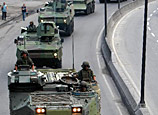
 |
| (File Photo) |
Qihoo 360 Technology, China's largest Internet security service provider, has been under the media spotlight again recently, after being accused of stealing users' private information.
The Shanghai-based National Business Daily (NBD) reported on February 26 that Qihoo had stolen users' information through its security software and browsers, which are offered free of charge to more than 400 million active registered users.
The NASDAQ-listed company's stock price fell by almost 5 percent the same day.
The NBD report cited an independent researcher who posted a video on his personal Weibo showing how Qihoo's Safe Guard and Browser tracked every click by users on their computer and secretly transmitted the information to its cloud server. It also, allegedly, has a mechanism for wiping out the evidence of this, making it hard for people to discover and expose it.
Qihoo was also accused of secretly uninstalling software from competing firms during program upgrades.
The report cited the fact that Apple Inc had deleted all of Qihoo's applications from Apple Stores since January 25 and has not lifted the ban. Though Apple did not give any official announcement on this decision, an opinion from an IT insider was circulated on Weibo saying that Qihoo's products were removed partly because of their collection of users' information.
Some even posted the source code of Qihoo's program for taking users' information.
A reporter with the NBD told the Global Times on condition of anonymity on February 27 that all NBD employees had been required to uninstall Qihoo 360's products for fear of retaliation.
Qihoo responded on February 26, saying that the report was just a rumor fuelled by unidentified individuals and rival firms, and that it had seriously harmed its reputation. The company also said it would sue the NBD for the report.
A member of the NBD editorial staff surnamed Qin said that the newspaper had no official response to Qihoo's lawsuit.

















 The millionaire philanthropist promotes 'Clean Plate Campaign' at CPPCC session.
The millionaire philanthropist promotes 'Clean Plate Campaign' at CPPCC session.


![]()
